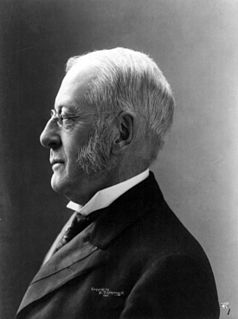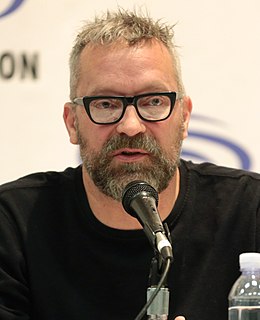A Quote by J. K. Rowling
Read as much as you possibly can. Nothing will help you as much as reading and you'll go through a phase where you will imitate your favorite writers and that's fine because that's a learning experience too.
Related Quotes
Master those books you have. Read them thoroughly. Bathe in them until they saturate you. Read and reread them…digest them. Let them go into your very self. Peruse a good book several times and make notes and analyses of it. A student will find that his mental constitution is more affected by one book thoroughly mastered than by twenty books he has merely skimmed. Little learning and much pride comes from hasty reading. Some men are disabled from thinking by their putting meditation away for the sake of much reading. In reading let your motto be ‘much not many.
My favorite thing to do is rip the covers off a script when reading for writers to hire and make everybody read without names on the covers of the script. I can't tell you how many times my writers, women and men, will pick people of color and women much more often than they would with a cover on the script.
Good description is a learned skill, one of the prime reasons why you cannot succeed unless you read a lot and write a lot. It’s not just a question of how-to, you see; it’s also a question of how much to. Reading will help you answer how much, and only reams of writing will help you with the how. You can learn only by doing.
You don`t have any problems - only this much has to be understood. This very moment you can drop all problems. because they are your creations. Have another look at your problems: the deeper you look, the smaller they will appear. Go on looking at them and by and by they will start disappearing. Go on gazing and suddenly you will find there is emptiness - a beautiful emptiness surrounds you. Nothing to do, nothing to be, because you are already that.
The gift of creative reading, like all natural gifts, must be nourished or it will atrophy. And you nourish it, in much the same way you nourish the gift of writing - you read, think, talk, look, listen, hate, fear, love, weep - and bring all of your life like a sieve to what you read. That which is not worthy of your gift will quickly pass through, but the gold remains.
I think too much is known about me already. I think biographical information can get in the way of the reading experience. The interchange between the reader and the work. For example, I know far too much about Norman Mailer and Kurt Vonnegut. Because I know as much as I do about their personal lives, I can't read their work without this interjecting itself. So if I had it to do over, I'd probably go the way of J.D. Salinger or Thomas Pynchon. And just stay out of it altogether and let all the focus be on the work itself and not on me.
If I had the opportunity to say a fine word to all the young people of America, it would be this: Don't think too much about yourselves. Try to cultivate the habit of thinking of others; this will reward you. Nourish your minds by good reading, constant reading. Discover what your lifework is, work in which you can do most good, in which you can be happiest. Be unafraid in all things when you know you are in the right.
Throughout much of history, women writers have capitulated to male standards, and have paid too much heed to what Virginia Woolf calls "the angel in the house." She is that little ghost who sits on one's shoulder while one writes and whispers, "Be nice, don't say anything that will embarrass the family, don't say anything your man will disapprove of ..." [ellipsis in original] The "angel in the house" castrates one's creativity because it deprives one of essential honesty, and many women writers have yet to win the freedom to be honest with themselves.































